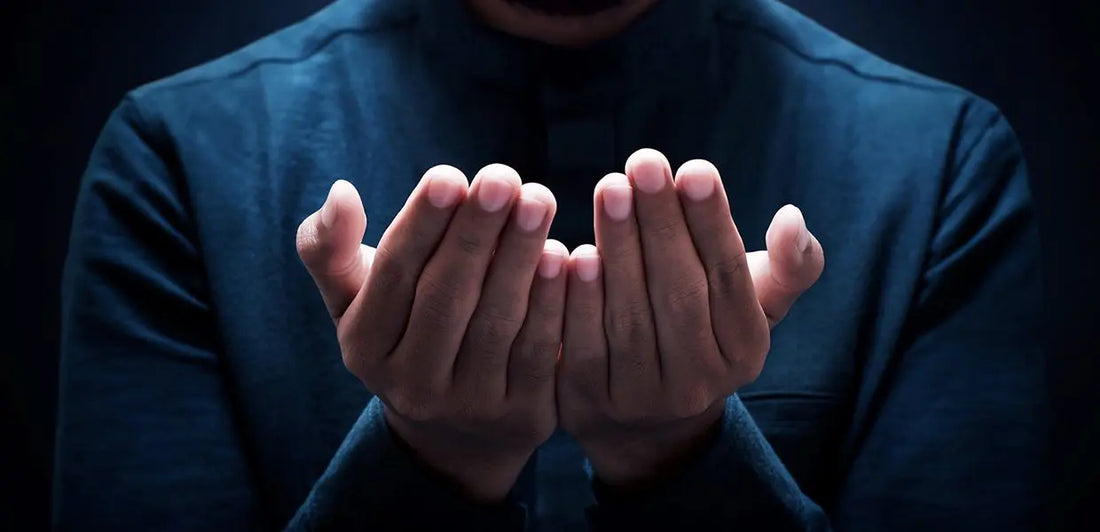
Dua’s for Health and Healing in Islam
In Islam, health and well-being are seen as blessings from Allah (SWT), and maintaining good health is a significant part of fulfilling one's duties as a believer. However, illness and health challenges are also seen as tests from Allah, meant to purify, strengthen faith, and bring one closer to their Creator. During times of sickness or hardship, Muslims turn to duas (supplications) for healing and seek Allah’s mercy for health and well-being.
This article will explore the concept of dua for health and healing in Islam, the significance of these prayers, and how they can be integrated into everyday life as a source of spiritual strength.
The Importance of Dua in Islam
Dua is often described as the weapon of a believer. It is a form of communication with Allah where one asks for guidance, forgiveness, and help. In matters of health, dua takes on a special role. Muslims believe that Allah alone has the power to cure all ailments, and dua is a way of seeking His mercy and healing.
The Prophet Muhammad (PBUH) said:
“No Muslim makes supplication – unless it is for something sinful or for the cutting of family ties – but that Allah will give him one of three answers: He will either hasten his request (in this life), or store it for him in the Hereafter, or divert an equivalent evil from him.” (Tirmidhi)
This Hadith emphasizes that every sincere dua is answered, even if the outcome isn’t immediately visible. Therefore, Muslims are encouraged to make dua not only when they are ill but also to pray for continuous good health.
Dua for Healing: Quranic Verses and Sunnah
Islam provides several beautiful and powerful supplications for healing and health, rooted in the Quran and Hadith. Here are a few significant ones:
1. Surah Al-Fatiha:
The opening chapter of the Quran, Al-Fatiha, is known as a healing prayer. It is often recited for general well-being and to seek protection from all forms of harm and illness.
“In the name of Allah, the Most Compassionate, the Most Merciful. All praise is for Allah, Lord of all worlds. The Most Compassionate, the Most Merciful. Master of the Day of Judgment. You alone we worship, and You alone we ask for help. Guide us on the Straight Path, the path of those who have received Your grace; not the path of those who have brought down wrath upon themselves, nor of those who have gone astray.” (Quran, 1:1-7)
2. Dua of Prophet Ayub (AS):
Prophet Ayub (AS) was tested with severe illness but remained patient. His dua for healing is recorded in the Quran, and it is a powerful prayer for those seeking relief from illness.
“Indeed, adversity has touched me, and You are the Most Merciful of the merciful.” (Quran, 21:83)
This short yet impactful dua reflects Ayub’s complete trust in Allah’s mercy, serving as a reminder to place one’s faith in Him during times of illness.
3. Dua for Protection and Health
The Prophet Muhammad (PBUH) taught several duas for seeking protection from illnesses. One of the well-known ones is:
“Allahumma inni a'udhu bika minal-barasi, wal-junooni, wal-judhaami, wa sayyi'il-asqaam.”
Translation: “O Allah, I seek refuge in You from leprosy, insanity, paralysis, and evil diseases.” (Abu Dawood)
This dua asks Allah for protection against specific illnesses, but its scope can be extended to seeking overall health and protection from any form of harm.
The Role of Patience and Gratitude During Illness
Illness in Islam is not viewed purely as a negative experience but is often seen as a means to attain closeness to Allah and cleanse one’s sins. The Prophet (PBUH) said:
“No calamity befalls a Muslim but that Allah expiates some of his sins because of it, even though it were the prick he receives from a thorn.” (Bukhari and Muslim)
This Hadith serves as a reminder that while sickness is challenging, it also provides an opportunity for spiritual growth. Remaining patient (sabr) and thankful even in difficult times can lead to immense rewards.
In times of illness, Muslims are encouraged to reflect on the following:
-
Tawakkul (Trust in Allah):
Place complete trust in Allah’s wisdom and mercy, believing that whatever happens is part of His divine plan. -
Sabr (Patience):
Patience is emphasized as a virtue during times of illness. It teaches individuals to endure hardships with grace, knowing that these moments bring spiritual rewards. -
Shukr (Gratitude):
Even when facing sickness, Muslims are encouraged to remain grateful for the blessings they still have. This mindset of gratitude helps maintain a positive attitude and reliance on Allah’s mercy.
How to Incorporate Dua into Your Daily Life
Dua for health and healing can be a part of everyday life, whether you are facing illness or seeking general well-being. Here are some practical ways to incorporate these prayers into your routine:
-
Morning and Evening Supplications:
Begin and end your day with duas for protection and health. This practice not only brings peace of mind but also serves as a spiritual safeguard. -
Reciting Surahs and Healing Duas:
Make it a habit to recite Surah Al-Fatiha, Ayat-ul-Kursi, and other healing duas after your daily prayers. These verses from the Quran have immense power and blessings. -
Seek Forgiveness and Offer Sadaqah:
Regularly seek forgiveness and give charity, as both acts are closely linked to receiving Allah’s mercy and healing. The Prophet (PBUH) said, “Give charity without delay, for it stands in the way of calamity.” (Tirmidhi)
Conclusion: Dua as a Source of Healing and Strength
Dua is a powerful tool in Islam, not only for seeking physical healing but also for gaining spiritual strength during illness. By placing trust in Allah and reciting the duas for health and protection, believers can find solace and peace, knowing that their prayers are heard.
Illness is a reminder of human vulnerability, but it is also an opportunity to turn to Allah in humility and trust. Through patience, gratitude, and constant supplication, Muslims can navigate the trials of sickness with faith, knowing that Allah’s mercy is vast and His healing is near.
May Allah grant us all health and well-being and make our times of illness a means of purifying our souls and drawing closer to Him. Ameen.
